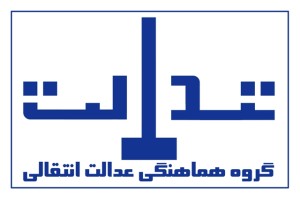Transitional Justice Coordination Group (TJCG) Press Release Concerning War Crimes and Crimes Against Humanity in Kunduz
4 October 2015
Kabul, Afghanistan
The fall of Kunduz to the Taliban has created a humanitarian crisis unparalleled in the past 14 years. Reports by international organizations, Amnesty International and witnesses suggest that tens of civilians and prisoners have been the victims of individual and mass killings or have been subjected to torture or inhuman treatment before being summarily executed. Civilian areas have been targeted; women and girls have been victims of individual and gang rape; public and private property, including that belonging to international organizations, has been destroyed; civilians have been used as human shields or forced to fight; and children have been used to search houses to identify targeted individuals. Thousands of families have been displaced and are living with minimum resources, with no access to water, food or electricity. Such acts are against the principles of Islam, and also constitute violations of human rights and international humanitarian law, including the four Geneva Conventions of 1949, the Additional Protocols of 1977 and Article 8 of the Rome Statute of 1998.
The Transitional Justice Coordination Group strongly condemns these war crimes, including the bombardment of the hospital in Kunduz. The TJCG believes that the continuation of these crimes is due to the culture of impunity and lack of accountability in the form of war crimes legislation and special war crimes tribunal. Without such accountability mechanisms, these crimes will continue. In light of the above, we demand that the Government of Afghanistan and the international community take immediate and appropriate actions to prevent further war crimes and crimes against humanity and to bring the perpetratorsof crimes already committed to justice.
The TJCG make the following recommendations:
To the Government of the Islamic Republic of Afghanistan:
1. In order to implement justice and regain the respect of the public, the appointed fact-finding commissions must not be just for show – they must investigate all alleged crimes and the underlying causes of the fall of Kunduz independently and thoroughly and their findings must be immediately released to the public.
2. The Government of Afghanistan must identify the elements within its own ranks who are supporting the enemy and investigate those individuals for aiding and abetting the enemy.
3. The Government of Afghanistan must establish a special war crimes tribunal in order to investigate war crimes, including those alleged to have occurred in Kunduz.
4. Taliban war criminals arrested by the government must not be released under the peace process; rather they should be tried, held accountable and punished by judicial organs.
5. The Government of Afghanistan and Afghanistan Independent Human Rights Commission must open a new investigation into the Taliban’s alleged war crimes. This investigation can provide the necessary evidence to hold the perpetrators accountable in national and international courts.
6. The Government of Afghanistan must take appropriate action to prevent crises and war crimes such as that which occurred in Kunduz.
7. The Government of Afghanistan must take immediate action to protect citizens’ lives, rights and property.
8. The Government of Afghanistan must support civilian victims and the families of deceased soldiers.
9. The Government of Afghanistan must support businesses that have been affected during the Kunduz crisis.
To the International Community:
1. We demand thatthe United Nations and the International Criminal Court – which has jurisdiction over Afghanistan – investigate and prosecute the war crimes and crimes against humanity that occurred in Kunduz.
2. We demand that the United Nations and international organizations, in coordination with the Government of Afghanistan, provide humanitarian aid and support to all of those affected by the violence in Kunduz, especially those displaced by the fighting,
To the Parties to the Conflict
1. All parties to the conflict must obey the laws of war – under no circumstances can they use citizens and public buildings as shields. In addition, they should refrain from fighting inside Afghan cities as part of their strategy.
2. All parties to the conflict must immediately cease the extrajudicial killing of detainees, including injured detainees, and must respect disrespect the bodies of deceased fighters.


